Spector - Interview
by Harry Sherriff
published: 29 / 10 / 2012
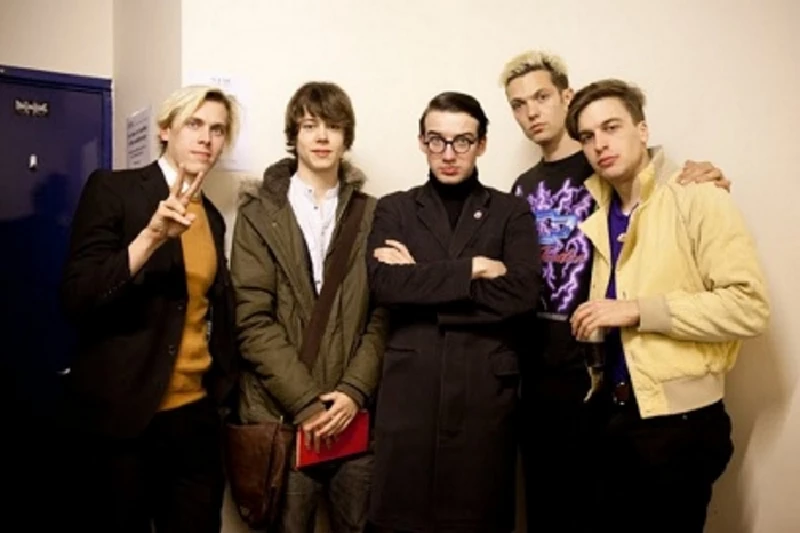
intro
Harry Sherriff with Marie Hazelwood speaks to London-based indie rock band Spector about creative fulfilment, the future of guitar music and why their record label hates them.
Spector are a rising young indie band from London, whose debut album, ‘Enjoy It While It Lasts’, came out in August. The group, a five-piece, was formed by former Les Incompetents front man Frederick Macpherson in 2010 with Thomas Shickle (bass), Christopher Burman (guitar), Jed Cullen (synth, guitar) and Danny Blandy (drums). They have drawn comparisons with both the Strokes and the Killers with their anthemic pop sound. Pennyblackmusic spoke to Thomas Shickle and the outspoken Frederick Macpherson at a show in Liverpool during a recent UK tour. PB: What is it like to be back in Liverpool and kicking off the English part of the tour here? FM: It is nice to be back in Liverpool. It is one of our favourite cities to play. We have just finished the Scottish leg of the tour, and so now we’re starting the English leg and Liverpool is a great city to start in. It has a great crowd and is a very cultural place. We took a day off here, and there are definitely worse places you can be stranded. PB: I just want to talk about the album and how strong it is. I referred to it to a mate as an album of singles. FM: That’s exactly what I think it is. I think we’ll make albums in the future that are more album type albums. We put every song bar one we had on there and a lot of them were written with the song in mind rather than the album in mind, so I think it is more like a compilation than an album. TS: But then again there’s a common thread. FM: Yeah, there’s a common thread. TS: And that goes from beginning to end if you listen. There’s a kind of… for us anyway… a story. FM: But we did do it with different producers at different studios and different dates. Next time we do an album we will probably be more inclined to do it in one place and in a fixed amount of time, but we’re really happy with this album. PB: How long did the album take to write? FM: It took three years but that wasn’t writing the whole time. A lot of songs came before the band was put together. I was just writing them to write songs. The second half was after the band came together. When ‘Never Fade Away’ was written, that set the ball rolling for the rest of the album and the whole idea of the band. TS: There were splurges of songs at one point. FM: Yeah. I did thirty songs in two months. That was the big splurge ,and a lot of that was crap actually. The only one that survived of that lot was ‘What You Wanted’, which was one of the earliest ones. It’s the oldest song on the album. Then came ‘Never Fade Away’ and ‘Grey Shirt and Tie’. One of the things I like about this album is that a lot of the songs were written just to write songs and I think that’s the best thing to do, just write a song to write a song rather than write with something in mind. It’s pure song writing. PB: With promoting an album that only came out in August, how do you start thinking about the next one? Do the two processes clash? FM: It’s weird. Our answer to that will come in the New Year. PB: Do you not even think about that now? FM: I think we’re definitely thinking about it but it’s tough because I never want to be that band who as soon as they’ve released an album are like, “Oh, we have done with that.” We want to continue to promote this album, but I don’t see why we can’t do that and look at new music at the same time. If you do things quickly and you do things well, I don’t see why making new music can’t be part of promoting an album. That’s how it works in hip-hop. People make mix tapes that run alongside, before and after they promote things in the shops. I think the indie way of making an album and touring for a year and a half and then taking six months off to write another album is very outdated, especially considering the technology that’s around now. You can write and record a lot quicker, so hopefully in the future we can make sure we don’t follow the pattern of album, tour, break, album, tour, break. I think we’re looking at something more interesting for our fans and ourselves. PB: A lot of critics have compared you to bands like the Strokes and the Killers who are huge bands headlining festivals. I think if Spector came out ten years ago you would be in the same position as them now. FM: I think that’s probably true. The songs would have made more sense in the early to mid-noughties, and I knew that when I wrote them there was a part of me wanting to fulfill ideas I’d had as a teenager when those bands came out. TS: No one is really doing that now. What artist has come up since then that has the capacity to do those things? FM: I think the weird thing is we have these songs that could be playing to thousands of people, but are playing them to hundreds of people and I quite like that. I like that we have the big songs and play them to small crowds. PB: My friend has a theory ‘Friday Night’ would have been as big as ‘Mr. Brightside’. FM: In my head I was trying to write Strokes riffs and Killers choruses, so, yeah, that makes sense. The funny thing, however, about being retro is you’re allowed to be retro for 70s or 80s but you’re not allowed to be retro for something ten years ago. PB: Some reviewers do hold it against you. FM: Yeah, I don’t think anyone has the right to hold anyone’s songwriting process against them because we chose to do what we’re doing. We’re massively fulfilling our own ambitions so those reviews don’t worry me. I think the songs will make more sense once there’s more music out there. When we’ve made more albums. people will understand Spector more as an entity and not see it as this ironic, or retro self-conscious indie-pop thing. TS: The next step doesn’t necessarily have to be less pop. FM: I think it’ll be less single-centric. I think there are a lot of songs on the album vying for attention individually. And that can be negative. It’s like if you put five children showing off in a room they’re not going to get on as well as five relaxed children. We need to learn that ambition… that every song doesn’t have to fulfill everything. It doesn’t have to be the biggest chorus or the most emotional thing… sometimes less is more. My one criticism of our album is it’s a bit too rich in places. It’s a bit too much. PB: What about ‘Lay Low’? That comes as a nice break… FM: Yeah, it’s good that there are breaks like that. But maybe there are not enough of them. I wouldn’t criticise our album. It fulfilled what we wanted to do. But there’s so much more we want to do. It’s hard to analyse Spector just from ‘Enjoy It While It Lasts’ because I have so many ideas of what we have been and what we will be. I think the twelve songs on it are brilliant. I can see why they’re not to everyone’s taste, but we’re not going to be for everyone’s taste. We’d have to be really bland to be to everyone’s taste or really amazing, and I don’t think we’re either of those things. PB: Did you read many of the reviews about ‘Enjoy It While It Lasts’? FM: I read all of them. I was very interested. I’m not one of those people who is like… I don’t think you should Google yourself. But I think everyone has the right to have an opinion on an album, as long as they’re not telling us what we should or shouldn’t do or being personal, which a couple of reviews were, or judging me for how I live my life. But I’d be happy to read ten reviews by people saying our album is shit as long as they can explain why it’s shit. TS: It was real interesting to see that outside perspective. FM: I got excited. I’ll continue to read reviews. PB: Do you think more bands should do that? FM: I don’t think anyone should or shouldn’t… TS: I think everyone does. FM: I think everyone should do what’s right for him or her. It depends what…if you’re a genuine artist maybe it’s completely irrelevant to you. To me I’m as much an entertainer as an artist and, if you’re seeking to entertain, then maybe you want to know if you’ve entertained someone or failed to entertain. In many cases we’ve failed to entertain someone but we’ve fulfilled ourselves artistically so you kind of get this inner turmoil between the entertainer and the artist. I think that dictates a lot of the reasons why great artists like Tom Jones, Cliff Richard or even Frank Sinatra at certain points have really struggled with their discographies because when they started to do things to fulfill themselves they’ve found their audience waning. Even though I think the Beatles couldn’t have lasted longer than ten years and even though David Bowie fell off at some point, it is a very precarious balance to be entertaining a mass audience and fulfilling yourself on a creative level. You reach that apex and it never lasts long. TS: What about the Cure? I think the Cure did it. FM: I don’t there’s entertainment or art. I’m saying to get the balance right to fulfill you, and a lot of people are nigh impossible. It’s been done by some artists but not for long. Even a band like the Arctic Monkeys, they’re choosing to alienate certain areas of their fans to go anddo what they want to do. PB: They’re choosing to go heavy. FM: Yeah exactly. Whereas a band like One Direction will always be about entertaining a big crowd rather than fulfilling themselves on a creative level. There are artists like Scott Walker or Kate Bush that aren’t going to be doing media or jumping through hoops. They make music for themselves first and fully, and I respect that. You have artists like Westlife who make their music fully for other people. The fun for me is trying to do both and figuring out how. PB Matt Cardle (‘X-Factor’ winner 2011) came out a few weeks ago and said, “They treat you like a puppet. You have no input”. What did he expect? FM: Exactly. That’s the thing. TS: We’ve been really lucky in having an input. Our label hate us. Pretty much. FM: No they don’t. TS: Hate’s a strong word. FM: We show a lot more interest than a lot of other bands do, and in every element as well. What people would find shocking is that we have complete control over what we do, and the pop element is something we push. I wanted to make pop music and be in a pop band, and I think to a certain extent we’ve fulfilled that. We’re not necessarily very popular, but we do make pop songs and I do enjoy Spector because I think it’s different to a lot of bands that are around and I think we very much understand what we are. And that’s the most important thing: Know yourself and be yourself. PB: You were in other bands before. Obviously starting a new band is a fresh start. Did you ever go, “Right, with this band I’m not doing that or I must do this with this new band”? FM: Absolutely. But also I don’t see a band as either a success or a failure. The bands I’ve been in during the past have been less popular, but that doesn’t make it less satisfying. You just need to know what you’re aiming for. As soon as this band started, I set out aims and we’ve fulfilled them. I didn’t write them down but there were things I knew I wanted to do and we’ve already achieved 80% of everything I wanted to do. PB: To go back to that idea of Spector ten years ago being a lot bigger band because of the times, what do you think of the future of guitar music? FM: I wouldn’t want to forecast. I think it would be foolish to forecast the future of guitar music. I don’t think the guitar, as an entity will be more or less relevant. I know longer believe there’s such a thing as guitar music anyway. That’s sort of an archaic 90’s way of looking at things. I hope in ten years people don’t refer to such a thing as guitar music. I hope all those walls will come down. Hopefully the record shops will close. There’ll no longer be areas for metal, hip-hop or indie-rock. That will end, and by the time our children are our ages I think most genre names will be ways to describe old music. PB: Thank you. The photographs that accompany this article were taken by Marie Hazelwood.
Picture Gallery:-
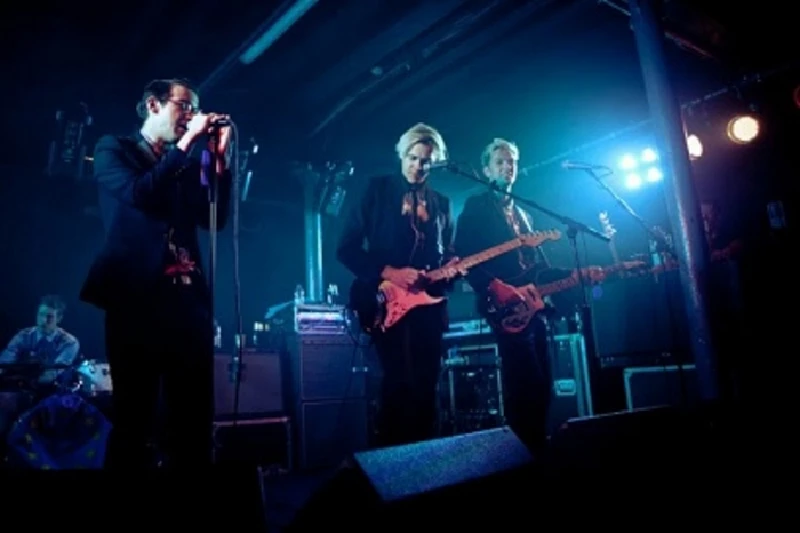
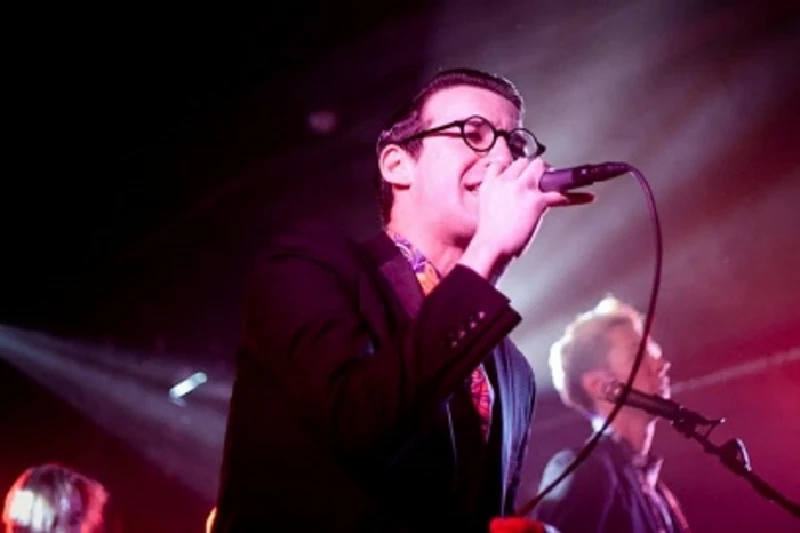
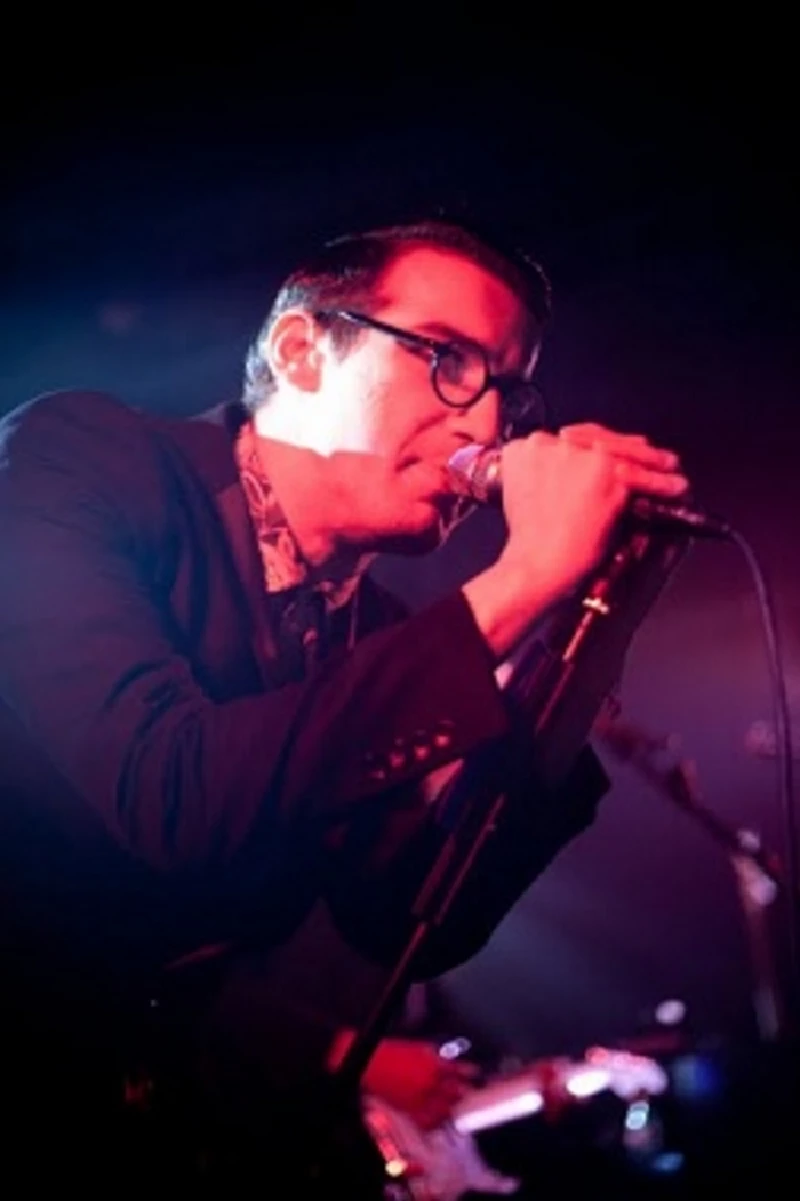

live reviews |
|
O2 Academy, Liverpool, 16/10/2012 |
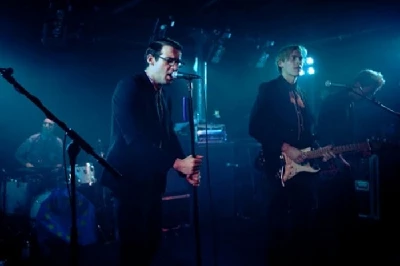
|
| Harry Sherriff enjoys Spector's energetic and anthemic pop at a gig at the O2 Academy in Liverpool |
most viewed articles
current edition
Deb Googe and Cara Tivey - InterviewJack Frost - As Seen on TV
Nils Petter Molvaer - El Molino, Barcelona, 24/4/2025
John McKay - Interview
Editorial - July 2025
Robert Forster - Interview
When Rivers Meet - Waterfront, Norwich, 29/5/2025
Kruder and Dofmeister - Paral-lel 62, Barcelona, 27/4/2025
Skunk Anansie - Old Market, Brighton, 16/5/2025
Yardbirds - Des Plaines Theater, Des Plaines, 18/4/2025
previous editions
Boomtown Rats - Ten Songs That Made Me Love....Heavenly - P.U.N.K. Girl EP
Oasis - Oasis, Earl's Court, London, 1995
Loop - Loop / Godflesh - Heaven, London, 4/6/2014
Super Furry Animals - Ten Songs That Made Me Love...
Brad Elvis - Interview
Not Forgotten Girl - Interview
Serge Gainsbourg - Ten Songs That Made Me Love...
Heaven 17 - Interview
Joe Perry (Aerosmith) - Interview
most viewed reviews
current edition
Davey Woodward - Mumbo in the JumboVultures - Liz Kershaw Session 16.06.88
Billy Nomates - Metalhorse
HAIM - I Quit
Vinny Peculiar - Things Too Long Left Unsaid
Peter Doolan - I Am a Tree Rooted to the Spot and a Snake Moves Around Me,in a Circle
Pulp - More
Garbage - Let All That We Imagine Be The Light
Morcheeba - Escape The Chaos
Little Simz - Lotus
Pennyblackmusic Regular Contributors
Adrian Janes
Amanda J. Window
Andrew Twambley
Anthony Dhanendran
Benjamin Howarth
Cila Warncke
Daniel Cressey
Darren Aston
Dastardly
Dave Goodwin
Denzil Watson
Dominic B. Simpson
Eoghan Lyng
Fiona Hutchings
Harry Sherriff
Helen Tipping
Jamie Rowland
John Clarkson
Julie Cruickshank
Kimberly Bright
Lisa Torem
Maarten Schiethart